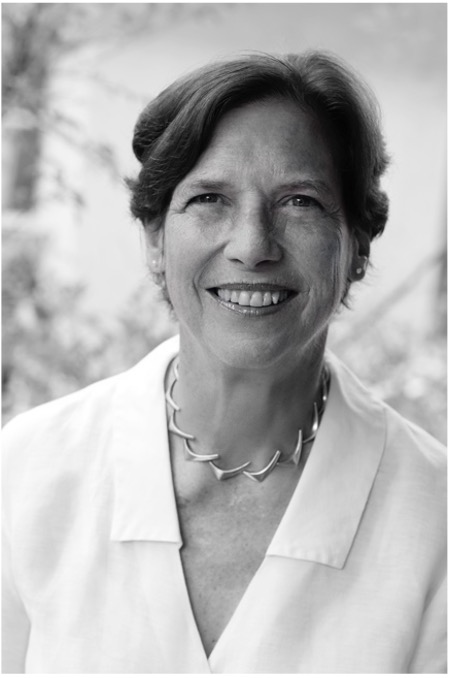Keynote 1: Professor Shinobu Kitayama
“Culture and the COVID-19 Pandemic: Multiple Processes and Policy Implications”

The coronavirus disease 2019 (COVID-19) pandemic caused a massive toll on human life worldwide. Particularly noteworthy is the United States—the world’s largest economy—, which suffered the largest number of deaths among all countries during the first year of the pandemic. A careful analysis is needed to understand the multifaceted process underlying this failure and prepare ourselves for epidemics and pandemics nearly certain to hit us again in the future. Here, I will review existent evidence and argue that certain historical, social structural, cultural, and psychological factors converged with strong values many Americans hold on individualism to render effective coping with the infectious disease nearly impossible to achieve. The lack of effective political leadership exacerbated this state in the first year of the pandemic. Based on this analysis, several policy recommendations will be discussed.
Keynote 2: Professor Richard A. Shweder
“The Values in Cultural Anthropology: For example, in Raising Doubts about the Prosecution of Dawoodi Bohra Mothers”

How good are anthropologists at answering normative questions about the scope and limits of tolerance for cultural diversity, for example, when faced with customs such as a long-standing, gender-equal, religiously based Muslim version of the ancient Jewish Abrahamic circumcision tradition? For much of the twentieth century American cultural anthropology was meant to be an antidote to ethnocentrism and a challenge to imperial "up-from-barbarism," "we're developed/you're not", “West is best” thinking. That was its value. That was its telos. Its aim was to promote social intelligence in a world of plural beliefs, ideologies, values, and ways of life. It’s mission (a classically liberal one) was to expand the scope of toleration for cultural and civilizational differences. Its message to practitioners: Nature, human rationality and the rules of moral reason leave plenty of room for cultural variety, so strive to verify the reality, validity, and intelligibility of values, beliefs, and ways of life different from your own.
My presentation will address two questions: (1) How is that pluralistic ideal connected to three other contemporary conceptions of the value of anthropology, for example, as a positive science seeking to discover how the world works; as a skeptical postmodern discipline unmasking claims to objective knowledge, and as a moral movement engaged in identity politics and social activism?; and (2) To what extent are cultural anthropologists able to address normative questions about the scope and limits of tolerance for cultural diversity in liberal democracies such as our own? Highlighted as a case in point will be the recent prosecutions of Muslim mothers of the Dawoodi Bohra community in the United States, Australia, and India, who are under attack because they customarily adhere to a religiously based gender-inclusive/gender-equal version of the ancient Jewish Abrahamic circumcision tradition.
Keynote 3: Professor Patricia Marks Greenfield
“Pandemic Culture: Adaptation to Survival Threat”

What are the psychological effects of the coronavirus pandemic? My Theory of Social Change, Cultural Evolution, and Human Development predicts that when survival concerns, mortality salience, smaller-scale interaction augment, life shifts towards activities, values, relationships, and parenting expectations typical of small-scale rural subsistence environments with low life expectancy. Specific predictions were: intensified mortality salience (e.g., thinking about one’s own mortality); increased subsistence activities (e.g., growing food); augmented subsistence values (e.g., conserving resources); more interdependent family relationships (e.g., members helping each other obtain food); and parents expecting children to contribute more to family maintenance (e.g., by cooking for the family). All hypotheses were confirmed with a large-scale survey in California (N = 1,137) during the coronavirus pandemic; results replicated in Rhode Island (N = 955). We posited that mortality salience would drive change; statistical analysis confirmed this prediction. We are currently testing the effect of stay-at-home, as an isolating mechanism that will also be a causal influence.
Because coronavirus has forced unprecedented proportions of human activity online, we also tested hypotheses derived from the theory by analyzing big data samples for 70 days before and 70 days after the coronavirus pandemic stimulated President Trump to declare a national emergency. Google searches were used for an exploratory study; the exploratory study was followed by three independent replications on Twitter, internet forums, and blogs. Across all four internet platforms, terms related to subjective mortality salience, engagement in subsistence activities, and collectivism showed massive increases. These findings, coupled with our survey data, indicate that humans may have an evolutionarily conditioned response to the level of death, reduced availability of material resources, and smaller-scale social groupings. More specifically, humans may shift their behavior and psychology toward that found in subsistence ecologies under conditions of high mortality, low prosperity, and smaller scale, or, conversely, toward behavior and psychology found in modern commercial ecologies under conditions of low mortality, high prosperity, and larger scale social interaction.
Keynote 4: Ying-yi Hong (康萤仪)
“How does national identification matter for the fight against COVID-19?”
 Fighting the COVID-19 pandemic requires large numbers of citizens to adopt disease-preventive practices. We contend that national identification can mobilize and motivate people to engage in preventive behaviors to protect the collective, which in return would heighten national identification further. To test these reciprocal links, we conducted studies in two countries with diverse national tactics toward curbing the pandemic: (1) a two-wave longitudinal survey in China (Study 1, N = 1,200), where a national goal to fight COVID-19 was clearly set; and (2) a five-wave longitudinal survey in the United States (Study 2, N = 1,001), where the national leader – then-President Trump – rejected the severity of COVID-19 in its early stage.
Fighting the COVID-19 pandemic requires large numbers of citizens to adopt disease-preventive practices. We contend that national identification can mobilize and motivate people to engage in preventive behaviors to protect the collective, which in return would heighten national identification further. To test these reciprocal links, we conducted studies in two countries with diverse national tactics toward curbing the pandemic: (1) a two-wave longitudinal survey in China (Study 1, N = 1,200), where a national goal to fight COVID-19 was clearly set; and (2) a five-wave longitudinal survey in the United States (Study 2, N = 1,001), where the national leader – then-President Trump – rejected the severity of COVID-19 in its early stage.
Results revealed that national identification was associated with an increase in disease-preventive behaviors in both countries in general. However, higher national identification was associated with greater trust in Trump’s administration among political conservative American participants, which then was associated with slower adoption of preventive behaviors. The reciprocal effect of preventive behaviors on national identification was observed only in China. Overall, our findings suggest that although national identification may serve as a protective factor in curbing the pandemic, this beneficial effect was reduced in some political contexts. In the talk, I will discuss how these findings have implications for the intergroup tension between China and the United States beyond the pandemic.
